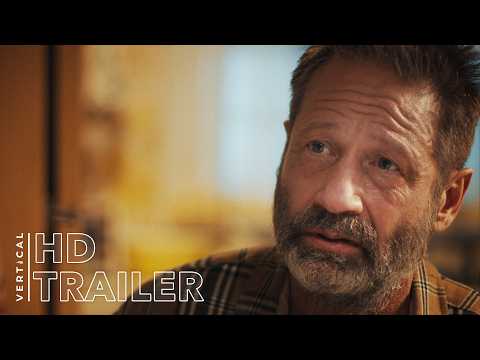Few phrases capture a sports fan’s agony like “Bucky F***ing Dent.”
The light-hitting Yankees shortstop made Red Sox fans miserable in 1978, turning his name into a Beantown slur. His stunning, three-run homer in the one-game playoff between the bitter rivals is one of baseball’s best moments.
It also inspired the title behind David Duchovny’s “Bucky F***ing Dent,” the novel he turned into his second directorial effort.
“Reverse the Curse” should throb with a fan’s undying passion. Instead, the story teeters between forced humor and treacly melodrama. A few poignant moments rise to the surface, suggesting what a far better film might look like.
That’s a shame because Duchovny hasn’t been this compelling in a while.

It’s 1978, and our main character spends his days flinging peanuts to hungry fans at Yankee Stadium.
Teddy (Logan Marshall-Green) wants to write novels, but he’s stuck in perpetual adolescence, down to his Wolverine-like sideburns. His stupor is shaken by word that his estranged father Marty (Duchovny) is dying.
The son reluctantly decamps to Marty’s house, and their past disagreements quickly flare up. Marty’s “death coach” Mariana (“Brooklyn Nine-Nine‘s” Stephanie Beatriz) brings down the temperature, but there’s so much anguish between father and son it’ll take more than her presence to keep the peace.
At least Marty and Teddy can agree on loving the Sox, caught in an epic battle with their rivals in the summer of 1978.
And we all know how that turned out.
Screen Rant presents an exclusive clip from #ReverseTheCurse, starring David Duchovny, Logan Marshall-Green, and Stephanie Beatriz. Catch it in theaters or on demand on June 14! https://t.co/QUa1oLJvaM pic.twitter.com/URSuPKK06M
— Screen Rant (@screenrant) June 11, 2024
“Reverse the Curse” has a rom-com-level gimmick even Kate Hudson would turn down. Teddy tricks Marty into thinking the Sox are running away with the division. How? He intercepts the morning newspaper and hands him a manipulated version via cut-and-paste headlines.
The scheme is dumb on more levels than an abacus can count, and Duchovny the writer/director instinctively knows it. Other films would have pegged their story on the gambit. Here, it’s discarded long before the critical third act.
Up until then, Duchovny creates a compelling variation on the regretful father theme. We don’t know exactly how Marty failed his son, but the pair understands those emotional wounds aren’t easily solved.
Team Duchovny worked on a tight budget on “Reverse,” and it often shows. A quick street sequence uses ’70s-era B-roll in embarrassing ways. We get little of either New York City or Boston, visual elements that could have expanded the film’s canvas.
The film’s faux sports announcers wouldn’t fool a Little Leaguer.
View this post on Instagram
“Reverse” still finds ways to move us. Beatriz’s ability to channel authentic characters, be it here or as “Brooklyn’s” toughest cop, impresses. Duchovny withholds a key part of Marty’s backstory for the film’s waning moments, but the payoff is sizable.
So is his performance, a weathered soul processing grief while holding out hope for a reconciliation.
It’s all the more frustrating when Duchovny trots out an extended flatulence riff or expends screen time on Marty’s old buddies, neither of which pays off as intended.
And even this writer is exhausted by the “author who wants to write the Great American novel” trope. Can’t characters aspire to other career options?
“Reverse the Curse” proves Duchovny has the heart of a poet, down to the unpublished snippets from Marty’s past. His film shows he has a way to go before mastering a movie’s tone.
HiT or Miss: “Reverse the Curse” offers some meaty dramatic moments, but they’re scattered between cringe-level humor and meandering themes.
The post ‘Reverse the Curse’ Whiffs on Life’s Nasty Curveballs appeared first on Hollywood in Toto.
0 Comments